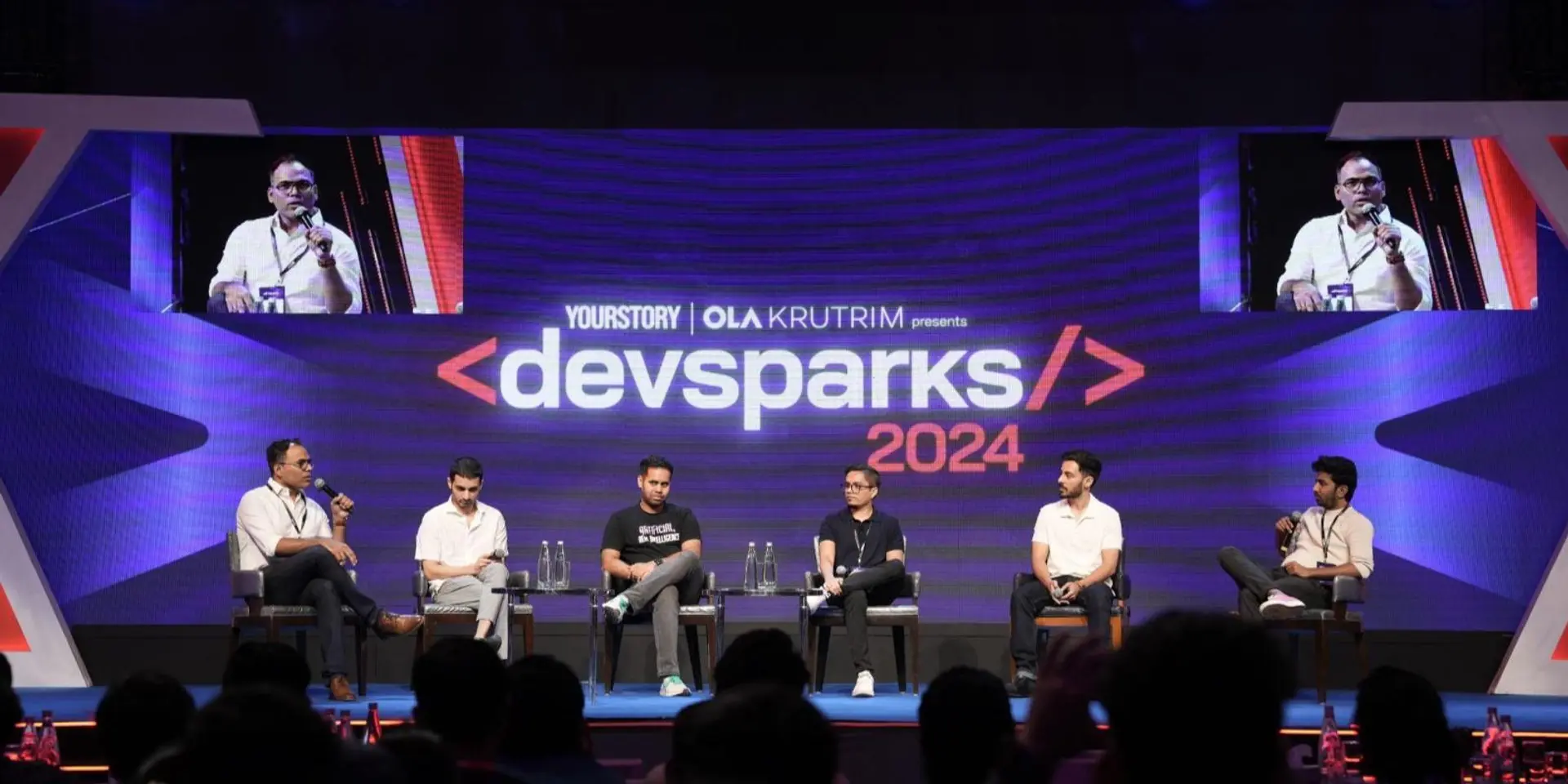"Pretty ubiquitous": Tech experts decode the current state of Gen AI
At YourStory’s first-ever developers conference, DevSparks 2024, industry leaders came together to examine the current state of Gen AI, use cases in India's developer ecosystem, and upcoming innovations in the sector.
Generative AI has been on the rise, and many consider technological advancement comparable to the discovery of electricity and the invention of the internet. On the other hand. it has also ushered in various challenges. However, the question looms large: what defines this juncture, and where does Gen AI's trajectory lead?
At YourStory’s first-ever developers conference, DevSparks 2024, in Bengaluru, industry leaders came together to examine the current state of Gen AI, use cases in India's developer ecosystem and the upcoming innovations in the space.
Vishwastam Shukla, CTO of , reflected on their early integration of AI, particularly deep learning, into its platform.
“We have been using AI even before the Gen AI bandwagon hit us...At HackerEarth, we leverage it to assess developers on different technical skills. For instance, if somebody writes a code on our platform, we use Gen AI to not just evaluate that code but also understand what the code is trying to do in natural language," he explained.
Varun Mayya, CEO of Aeos, highlighted the dual facets of Gen AI utilisation. "One is where I use Gen AI for work every day. We create content, so everything related to content is useful, from scripting to doing B-rolls for videos," he noted.
He also draws parallels between AI and the notion of God.
“I recently read this principle on God being omniscient, omnipresent, omnipotent. Omniscient is you know everything; omnipresent, you're everywhere in every device, and omnipotent, you can do everything. I think we've already hit two out of those three marks,” said Mayya.
Aditya Mohanty, Co-founder, The Product Folks talked about the widespread use of AI, with around 80% of the company’s workflows benefiting from AI assistance.
“It's pretty ubiquitous now...What would have taken us probably six months or so, we were able to do it in just under a month, with half the number of people because we used so much help from all of these tools out there,” Mohanty highlighted
However, while there are many micro-level uses where AI can assist users, Sanket Sahu, Founder and CEO, also talked about the need for an assessment of whether certain problems can be addressed with AI.
"I believe what we're witnessing currently is more of a micro-level application, where AI is helping you as an assistant...but we need a macro-level revisit. Do we even need [to approach] that problem that we're trying to solve with AI? Do we need interfaces that do not need to be there at all?” Sanket added.
Siddhant Goswami, CTO, explained how AI can help solve real-world challenges and teach individuals to develop and build practical solutions.
“My entire day goes into talking to people, particularly founders, which I can solve today with the technology we have. We run a 100x Engineers cohort, where we teach Gen AI in a six-month boot camp, and the entire goal is that you have to learn by doing. This is a kind of curriculum that never existed in the past...we are learning, inventing, and teaching at the same time,” he said.
Will AI replace jobs?
Goswami also highlighted the rapid evolution of AI technology and its current impact on work processes.
“Future of jobs...I think it's going to get automated, it's just about the time. It's better to spend your time solving high-quality problem statements. This is very true in India because we have many IT services companies where people are happy doing very low-quality work and they don't want to level up, and this is going to impact those engineers. This is the time to buckle up,” he added.
Adding on to the advice for budding tech professionals, Sanket noted that his company recently went on a hiring drive in a college and rejected half of them.
"Coding was never a problem; problem-solving was. If you can use AI for your advantage in solving problems, you can go faster in your career and you can be a senior developer maybe very soon, or an architect even sooner than it was possible,” Sahu added.
Aditya believes that using AI tools the right way will let one stay ahead of the game.
“What will always stay valuable is how much you're able to move the needle in whatever role you are in. So, as long as you are continuously [improving], it's not important to know how to use ChatGPT or any AI tool. It is important to be willing to use these tools to your advantage...As long as that's there, I think you'll continue being hireable,” he said.
Mayya questioned the necessity of traditional jobs in the long term, highlighting the evolution of technology.
“The modern job is about 300 years old. It coincides with modern institutions and educational institutions. Most of the progress that humans have ever made has been in the last 200 years. It's been accelerating exponentially,” he explained.
“We are at this point where we have a thing we can talk to, and it speaks back to you. You're able to generate any image you want in your head...the arc of progress is unstoppable. If you give it another 10, 20, 100 years, it's just going to get better and better,” he added.
Edited by Kanishk Singh




